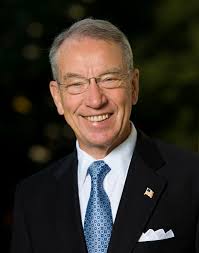Implementation of new U.S. Department of the Treasury and Internal Revenue Service rules for 501(c)(4) social welfare organizations will be on hold if Rep. Dave Camp (R-Mich.) gets his way. Camp, chairman of the House Ways and Means Committee, has introduced legislation meant to block the IRS from implementing the new regulations for one year, saying they infringe upon organizations’ First Amendment rights.
The legislation is HR 3865, Stop Targeting of Political Beliefs by the IRS Act of 2014. “It is premature to publish new rules before getting all of the facts,” said Camp via a statement. “We cannot allow these draft regulations to go into effect. Congress must make sure every American’s right to participate and engage in civic debate is protected, and this legislation will provide some much-needed assurance that IRS targeting and surveillance will not continue.”
The IRS rules, released this past November, would prohibit 501(c)(4) groups from engaging in certain political communications and activities. Examples include communications that advocate for a specific candidate or party, voter registration drives and nonpartisan voter guides.
Social welfare organizations are permitted to undertake political activity as long as that activity is not the group’s primary purpose. The IRS uses a “facts and circumstances” determination on a case-by-case basis to decide whether a group’s political activity is its primary purpose. Under current regulations, nonpartisan activity is not counted against that threshold, but would count under the new regulations.
According to the statement, Camp believes no new rules should go into effect until Congress finishes its investigation into the IRS’s targeting of conservative groups’ applications for 501(c)(4) status. It was found in May that the IRS had held up nearly 300 applications, a third of which contained the phrases “Tea Party,” “Patriots,” and “9/12” in the names of the groups applying. The flap caused the resignation of IRS interim commissioner Steven Miller, and Lois Lerner, director of the Exempt Organizations (EO) Division, was placed on administrative leave and subsequently retired.
“Despite the (Obama) Administration’s insistence that ‘there’s nothing to see here,’ the Committee has found evidence demonstrating that right-leaning groups were targeted to an extent far beyond what was reported by the Inspector General,” said Camp in the statement. “Our investigation is still ongoing and the Committee has not received all the requested documents.”
Marcus Owens, former director of the IRS EO Division and now a lawyer at Washington, D.C. law firm Caplin and Drysdale, said in November that the proposed rule “eliminates some of the tax rule ambiguities and replaces them with election law ambiguities.” He added that, “Instead of more objective presentation, the public is going to get bombarded with partisan communications.”











